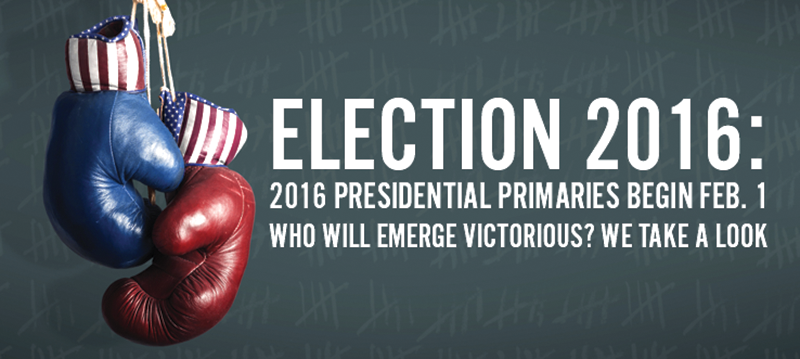By Tyler Pruett
tyler@southerntorch.com
With all the media coverage of 2015, it can be hard to believe that the first electoral event for the presidential primaries is almost two months away. Much like seeing Christmas decorations in early November, the campaign season seems to start sooner with every cycle. Here in Alabama, votes will be cast on March 1st, as part of the SEC Primary. New to 2016, our state, along with Georgia, Texas, Arkansas, and Tennessee will all cast primary votes on the same day. This was orchestrated by Alabama Secretary of State John Merrill and his Georgia counterpart Brian Kemp to make the southern states more viable in the primary process. Due to this, Alabama has seen visits by major candidates from both parties. Traditionally, campaign events in our state have been rare and geared more towards private fundraisers than rallies for the average voter. Although both parties have clear front runners, things could change dramatically in the coming months. In fact, rarely does the candidates with the highest polling numbers a year from the general election secure the nomination.
While the nomination of former Secretary of State Hillary Clinton has seemed inevitable, she was also presumed to be inevitable in November 2007, and as we remember the 2008 Democratic Presidential Primary concluded in a different way. This however does not prevent Clinton from projecting dominance as a strategy; only attacking potential Republican nominees and rarely even acknowledging the competition from her own party in order to portray the best hope for a Democratic victory. According to a recent Bloomberg Politics Poll, Clinton leads Senator Bernie Sanders by a margin of 25%. Sanders, the Independent Senator from Vermont, held a rally in Atlanta on Monday night. While attendance was high, none of the high-ranking Elected or Party officials from the state were present, according to the Atlanta Journal Constitution. While Sanders has repeatedly refused to accept help from Super PACs throughout the campaign, it was revealed this week that one such organization had already spent almost $600,000 on his behalf.
On the Republican front, the field remains large with thirteen candidates vying for the nomination. Though each poll varies slightly from others, most have Donald Trump as the frontrunner with a 4-5% lead over Dr. Ben Carson, whose trailing in second with Florida Senator Marco Rubio in third with 12% of the support, according to the latest Bloomberg Politics poll. As we near the primaries, many of the bottom tier candidates will begin to step out of the race. It’s to anybody’s guess who their supporters will vote for, but this will provide a clearer picture of how the race will shape out. The same poll shows undecided voters make up 12% of the individuals surveyed; enough to tie Rubio for third. It is likely that these undecideds will gravitate towards Rubio as we near voting. His effort for the nomination is the only campaign to show significant forward momentum in the last few months. Historically, a candidate in a trailing position, but showing momentum when voting begins will become the eventual nominee. The senator will be holding his first rally in Alabama next Tuesday in Guntersville.
Following the multitude of polls conducted on a weekly basis can be confusing in this early stage. Only time will tell, but early polls tend to be inaccurate for several reasons. Most are conducted electronically via landline telephone. The majority of people contacted refuse to participate, leaving a watered-down pool of respondents. Another increasing problem with this method is that many younger supporters aren’t included, because fewer have a landline telephone. This could misrepresent data for a candidate with strong support among millennials. These factors are compounded by many of the individuals surveyed having not come to a conclusion yet. Typically, likely voters don’t pay adequate attention until only weeks before ballots are cast.
As for the success of the new Southern Primary, many have mixed opinions. Thus far, it has been successful in bringing more candidates to the state, but the overall goal of the five states unanimously choosing a more conservative candidate remains undetermined until March 1. Southern Democrats tried this approach in the late 1980’s with the same goals, only to split among two candidates, which neither won the nomination. While all states involved lean Republican, conservatism varies between each. For example, Texas voters will likely support Ted Cruz more than voters in Alabama. If it doesn’t succeed in 2016, perhaps it will in a future primary without thirteen options on the ballot.





